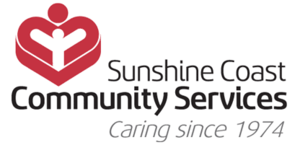OPINION: Sechelt needs a balanced housing strategy
Sechelt is facing a dangerous imbalance in housing and support services - we need a course correction now.
**This is the full letter sent to the Ministers of Housing, Health, and Social Development and Poverty Reduction, November 18, 2025.**
By Catherine Leach, Executive Director, Sunshine Coast Community Services Society
I am deeply concerned about the growing concentration of multiple housing and support services within a one-square-block area of Sechelt and the significant risks this presents to both the individuals accessing those services and the broader community. Within this small area, a shelter, an overdose prevention site, an encampment, and a supportive housing complex are now co-located—without the necessary balance of supports, consultation, or long-term planning. The cumulative impact is visible every day: open drug use, assaults, property damage, and community distress. This will be the view from the bedrooms of the children who will be moving into the new housing for women and children who have been impacted by violence. These new homes are a partnership between Sunshine Coast Community Services (SCCSS) and BC Housing and has been under development for nine years.
With the recent BC Housing announcement to add two new facilities to this same square block—one for supportive housing and one for complex care units, all without community consultation—we can expect to see this impact escalate. This situation is not sustainable, not safe, and not consistent with best practice. It risks undermining public confidence in community housing solutions and, most importantly, the safety and recovery of those the system is meant to help.
SCCSS has long been a partner in advancing the province’s housing and social-equity goals. We fully support the need for shelter, supportive housing, and harm-reduction services. But these must be implemented strategically, collaboratively, and in accordance with evidence-based practice—not clustered in one small area without the necessary wrap-around supports, workforce capacity, or pathways to recovery and stability.
Currently, there is no clear continuum of care for individuals moving from shelter to stability. Our region continues to lack detox and 90-day recovery beds, sufficient mental-health treatment options, and operational funding to sustain front-line staff. Recruitment and retention challenges—driven by the cost of housing, limited childcare, and wage pressures—further weaken our collective ability to deliver effective support.
It does not have to be this way. I am aware of four suitable sites in Sechelt and Gibsons that could accommodate affordable, mixed-income, and inclusive housing aligning with the Sunshine Coast Housing Needs Assessment. These opportunities would distribute resources more evenly, support healthier integration, and reflect what experience and research shows works best: housing that is affordable, diverse, and connected to community.
By contrast, concentrating a high number of people with complex needs in a single area—and near second-stage transition housing for women and children—is counter to best practice and risks retraumatizing vulnerable residents. It also places unsustainable pressure on local emergency, health, and community-service systems.
Decision makers and community leaders can take immediate action to rebalance this approach through:
A pause and review of current siting and density decisions in this one block; Meaningful engagement with local service providers, community members, and municipal leadership to design an evidence-based, distributed housing strategy; and Investment in the full continuum of supports—including detox, recovery, and mental-health services—to ensure housing stability and community well-being.
To help move this conversation forward, I am sharing several locally informed options for consideration. These may not be the solution, but they offer a place to start the community conversation:
- Explore the four available sites and work with the District of Sechelt and the community on form and function.
- Relocate the existing shelter and repurpose the land for mixed-income, affordable workforce housing.
- Work with VCH to move the Overdose Prevention Site to hospital grounds, making it more accessible, less stigmatized, and better integrated into the health system.
- Integrate residents living with mental health and addictions into the broader community through mixed-income developments.
- Establish the proposed 40 units of supportive housing at the available Gibsons site and consider mixed-use housing with social services on the ground floor.
- Reconsider the establishment of 20 complex-care beds on Ebbtide next to second-stage housing for women and children escaping violence and 35 long-term homes for women and women with children impacted by violence.
- Consider establishing six units of complex care in the building next door to existing prevention, support, and housing services for people living with mental health and addictions, expanding services on the ground floor.
- Establish workforce, mixed-income, diverse housing in one of three available locations on Trail and Cowrie Avenues in Sechelt.
- Provide programming dollars to help local non-profits build capacity to meet increasing needs.
- Help us bring detox and recovery services to the Sunshine Coast.
My comments are not intended to delay progress; they are a call to ensure success. The Sunshine Coast has a long history of community-driven solutions and strong collaboration. We can build the housing and support systems this region urgently needs - but only through partnership, planning, and balance.
Catherine Leach,
Executive Director
Sunshine Coast Community Services Society
Read more in the Coast Reporter
Call to action
Your voice matters - please consider sharing your thoughts with our MLA, Randene Neill:
- Email: Randene.Neill.MLA@leg.bc.ca
- Fax (Powell River office): 604‑741‑0795
- Write to: Honourable Randene Neill, MLA
Powell River–Sunshine Coast
#103 – 5674 Teredo Square
PO Box 888
Sechelt, BC V0N 3A0

 Give Today
Give Today  Get Involved
Get Involved  Stay Connected
Stay Connected